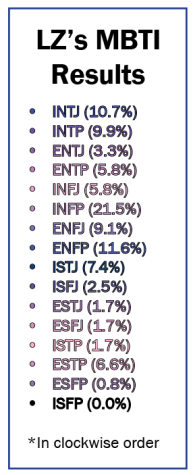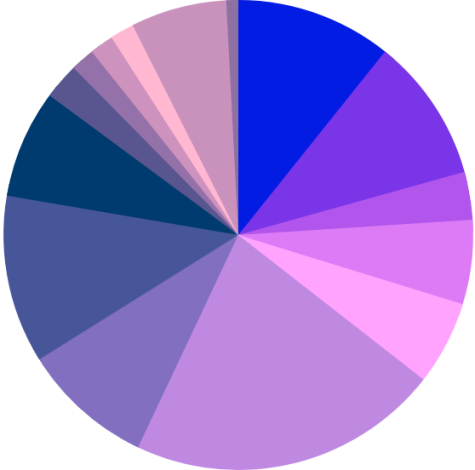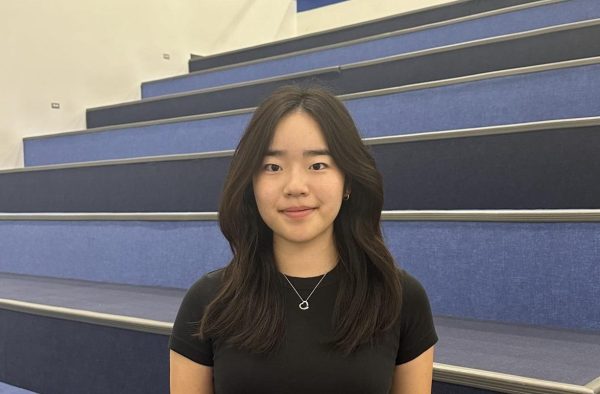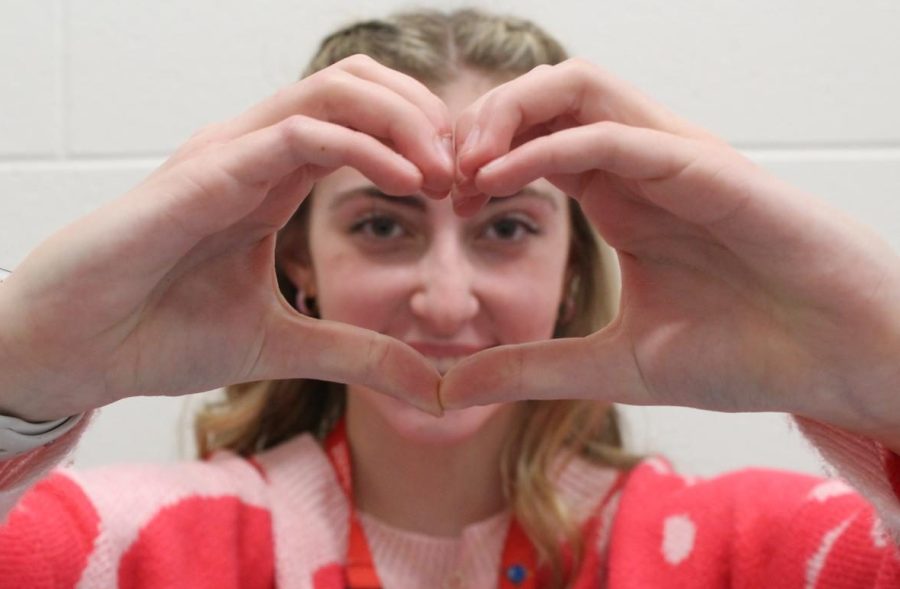Sorting an array of personalities
Photo by Jeanne Yu
Alexandra Goldenstein, sophomore, makes a heart to represent her personality. Goldenstein is an ENTP, which is also known as a caregiver.
There are more than eight billion people in the world, and each individual has their own unique personality. The Myers-Briggs’ personality test attempts to categorize them into 16 types.
The Myers-Briggs Type Indicator (MBTI) is “a test that asks a series of questions that will try to extrapolate your personality into categories and create a [personality] profile that best describes you,” Adrian Boziloff, senior, said.
The MBTI test has recently gained popularity, with over 50 million people having taken it since its creation. Alexandra Goldenstein, sophomore, is one of the many test-takers. She says that she is “dedicated, hardworking, and compassionate about [her work, as well as] caring and considerate.” Accordingly, Goldenstein is an ESFJ, which is known as the caregiver. She feels that this personality type is well suited to her.
“I feel like all of the traits that [the test] gave me really tell me a lot about my personality. I like to [know] what others think of me and what I’m doing,” Goldenstein said.
Nearly the opposite of Goldenstein, Boziloff is an ENTP or the debater. Boziloff says that his results fit him well, but he believes that the MBTI test does not provide a full report of an individual.
“I think the Myers-Briggs [test] is less [about] helping you understand your personality and is more about simplifying and generalizing it,” Boziloff said. “People are more complicated than [93] questions can possibly tell you.”
While some may agree with Boziloff, Addison Zent, freshman and an INTP, shares a different perspective about the specificity of the test.
“I honestly thought [the MBTI test] was gonna be one of those BuzzFeed quizzes where they’re really vague, but the questions [in the test] are really in depth,” Zent said. “They asked a lot of questions that you wouldn’t even think to ask yourself, so I feel like it was very specific.”

 The questionnaire also helped people, like Goldenstein, further understand their personality.
The questionnaire also helped people, like Goldenstein, further understand their personality.
“[The MBTI test] helped me see more issues with myself [like] how I need acceptance from others. I realize that I always ask for help because I’m not confident in what I’m doing,” Goldenstein said. “I just need reassurance and that’s one thing the test made me realize I have to work on.”
Although there are several benefits, the students agree that this test should not dictate the personalities of the test-takers.
“I think some people that take [the test] might attribute greater things to it, like ‘I’m this personality,’ and they follow it like some kind of ancient scripture,” Boziloff said. “[The MBTI test] is supposed to reveal more [about you], not turn your personality into [what it says it should be].”
Regardless of the potential negatives the test include, Zent says that she recommends the test to everyone because “it just helps you recognize what you like to do and [what] your needs [are].”
“You can find people who work well with your type of personality or recognize what kind of workspaces you like. [Knowing] things you’re comfortable doing helps set boundaries,” Zent said. “[The MBTI test] was an eye opener for me.”

Returning for her third year on staff, Jeanne is excited for her second year as the Digital Editor-in-Chief of Bear Facts. In addition to journalism, Jeanne...

